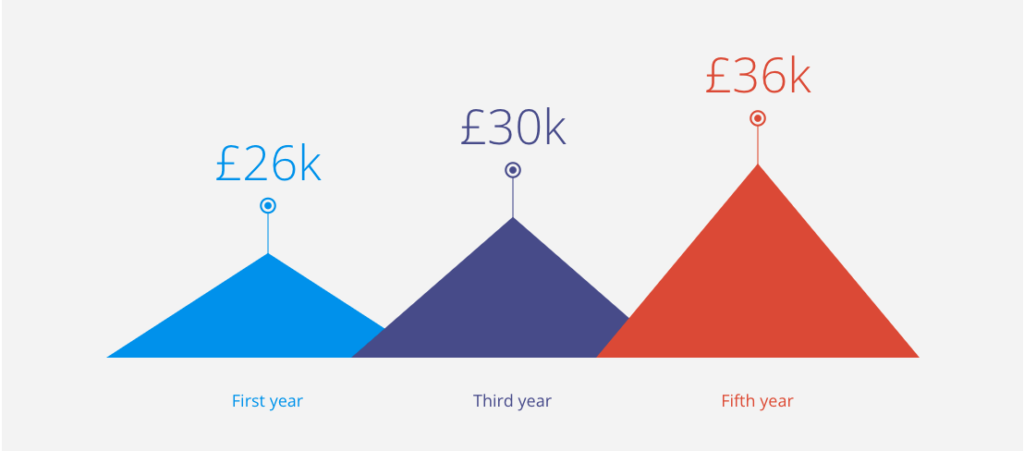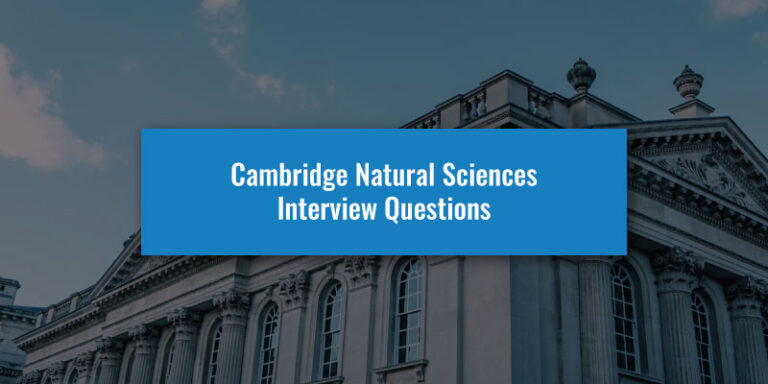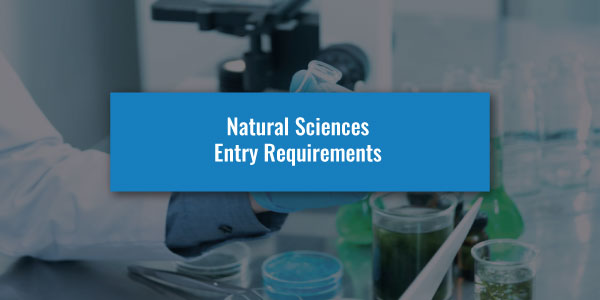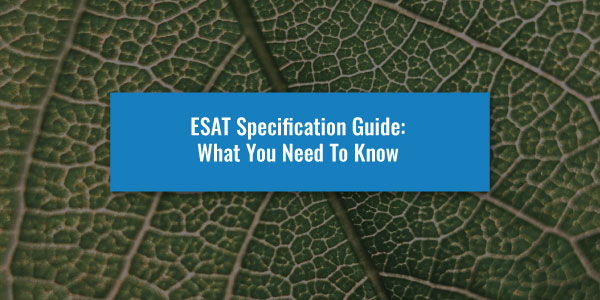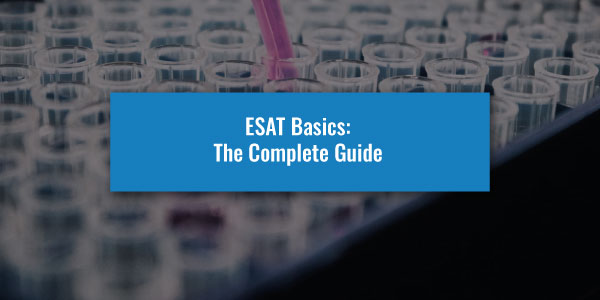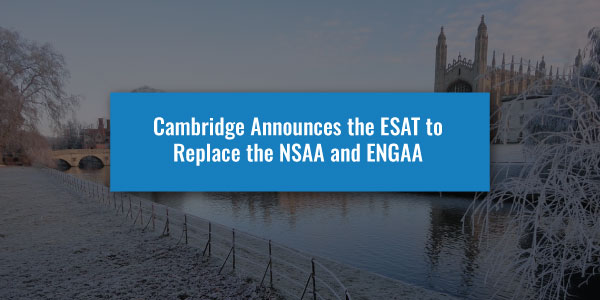When considering studying Science at a top university, you will be faced with the choice of either a single-Science course or going down the route of Natural Science.
Knowing how to decide between the two is key and will determine your next few years of study.
Flexibility and choice
The main advantage of taking a Natural Science course is that it is multidisciplinary. You will be able to study across the subjects rather than solely focus on one.
For anyone who is undecided as to what Science subjects you would like to study, this is an effective way to experience them all.
You can play to your strengths or challenge yourself with new subjects; you may end up discovering you have a passion for a subject you would never have considered studying.
Further to this, you will be provided with a broad introduction to a range of Sciences and scientific skills, which allows you to develop specialised knowledge in one or more subjects.
This way of studying is perfect for applicants who like more than one Science but not necessarily all of the module content associated with it to study the single-Science.
This flexibility in your studies is something other courses lack; the ability to study what you want to do is a freedom not offered by single-Science courses.
Our expert tutors are on hand to help guide you through your Cambridge Natural Science application.
We help you craft the perfect Personal Statement, achieve a highly competitive ESAT score and teach you how to Interview effectively.
Discover our Cambridge Natural Science Full-Blue Programme by clicking the button below to enrol and triple your chances of success.
The Workload
What is worth noting is that a Natural Science course is incredibly intense. Looking at the Cambridge Natural Science Tripos, the first year of teaching works out to about a 40-hour week – the same as a full-time job. Therefore, you would be expected to work for a part of most evenings and on weekends.
You will need to develop good time management skills and reserve the most difficult task for when you know you work well.
If you are having to get to grips with subjects that are out of your comfort zone because you have opted to study a subject you are not familiar with, this will also take up more of your time as you adjust to this as well.
What is important to remember is that by studying a subject as part of a Natural Science course, you do not cover them in any less depth. Students will achieve the same standard and depth in their final year as graduates from narrower courses elsewhere do.
It will be a lot of work.
That is not to say a single-Science will be any less intense, especially if it is at Oxford or another Russell Group university. But, managing the workload for one subject will be a lot easier than juggling multiple subjects, which may be totally different.
Whether you decide on Natural Science or a single-Science degree, making the most of your time is vital. Prepare a personal timetable and schedule of times for preparation and revision so you can best manage your time and deal with the intensive workload.
Specialising
The University of Cambridge believes that their course’s generalisation, rather than specialisation, gives their students an advantage. It allows students to experience subjects at university level before specialising.
Furthermore, many modern sciences exist at the boundaries of traditional disciplines, for example applying methods from a different discipline. This structure also allows other scientific subjects such as Mathematics, Medicine, and the History and Philosophy of Science to link with the Natural Science Tripos.
This means that once the two-year Part I of the Tripos has been completed, one can specialise in another biological science in Part II and still come out with a degree specialised enough to move into postgraduate studies.
This is the overwhelming positive of a Natural Science course; it means you can keep your options open and allow specialisation to evolve.
Applicants might go into the course knowing what path they wish to take but end up going down an entirely different route after discovering they enjoy another subject more.
With a Natural Science course, you have the opportunity to change your mind, which is not something you usually have the ability to do with a degree. This freedom to dictate your studies means you will come out of it with an as specialised degree as you wish to have.
Increase Your Career Opportunities
Studying Natural Science prepares you for a wide variety of careers. Natural Science gives you a far more interdisciplinary knowledge of the subjects than what a single-Science does, subsequently for a lot of employers; this is more desirable as you look at a problem from multiple perspectives with a better breadth of knowledge.
You can go into roles in science or industry, as well as in management, marketing, policy, sales, and beyond.
Recent graduates from the University of Bath Natural Science have gone on to careers as:
- Climate Change Policy Advisor
- Research Officer
- Medical Writer
- Headteacher
- Pilot
- Creative Director
- Software Engineer
- Lecturer
- Police Officer
Many are working for well-known companies and institutions such as:
- Proctor & Gamble
- University of Victoria
- Cancer Research UK
- Dyson
- BP
- BBC
- AstraZeneca
Graduates from the Cambridge Natural Science Tripos also enter similar employment areas working in IT, scientific research, finance, teaching, consulting, manufacturing and utilities, and the public sector.
As previously stated, employers are keen to make use of both your hands-on scientific skills and also your hands-off science knowledge.
In comparison, a single-Science degree could limit your employability due to the specialised nature of it.
For example, if you have a degree in Biology, typical employers are:
- Universities and clinical research organisations
- Pharmaceutical and biotechnology companies
- Private hospitals and NHS trusts
- National and global health, conservation and environmental charities
- Scientific and technical consultancies
- Schools and colleges
- Museums, science centres and broadcast companies.
The graphs below represent the median earnings of Cambridge Natural Science and Oxford Biology graduates, one, three and five years after graduating clearly showing the advantage Natural Science has.
Conclusion
- Natural Science allows you to tailor the course to your relevant interests, with the assumption that you will enjoy the course more and subsequently achieve higher grades as a result.
- Single-Science is more effective for anyone who has clearly defined career goals.
Ultimately, the decision comes down to what you feel suits your needs and aspirations the most.
Guarantee your place to study Natural Science at Cambridge with the expert help of our tutors.
Applying to Cambridge is immensely competitive, and you must give yourself the best chance of success. We help you craft the perfect Personal Statement, achieve a highly competitive ESAT score and teach you how to Interview effectively – covering all areas of your Cambridge application.
Discover our Cambridge Natural Science Full-Blue Programme for comprehensive admissions support by clicking the button below to enrol and triple your chances of success.


